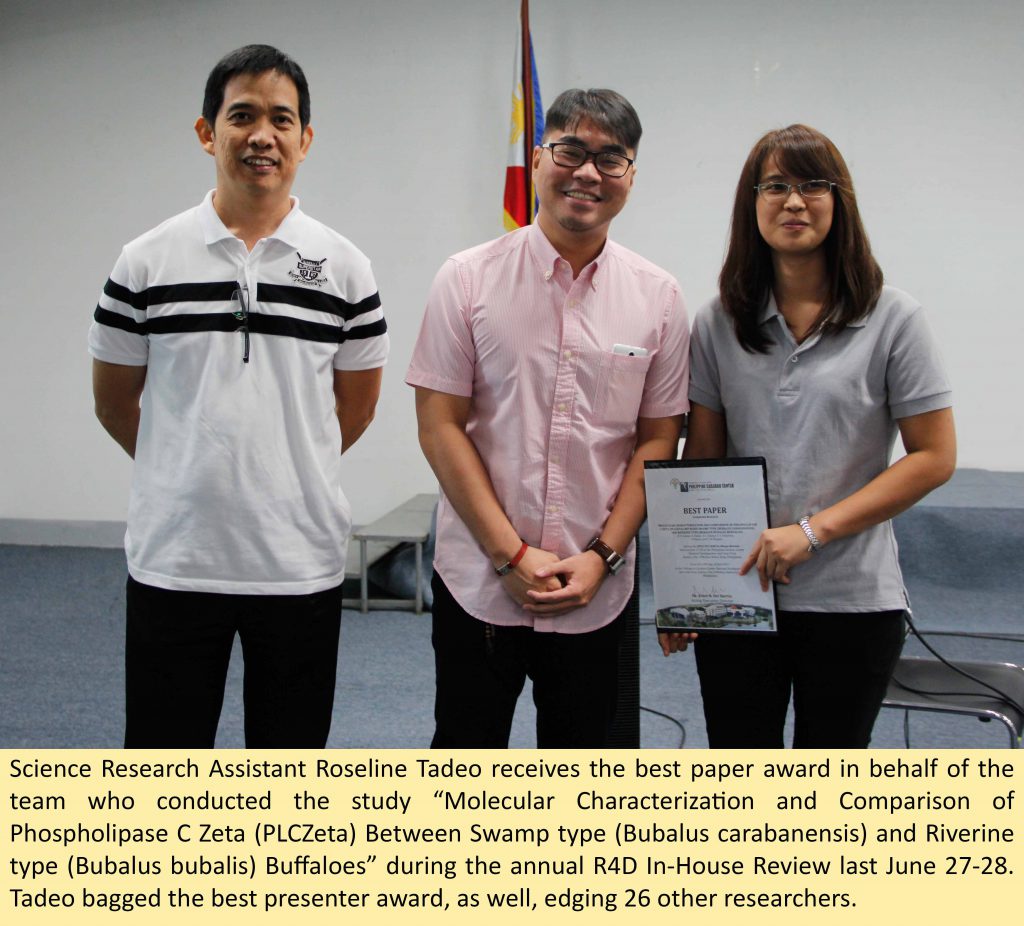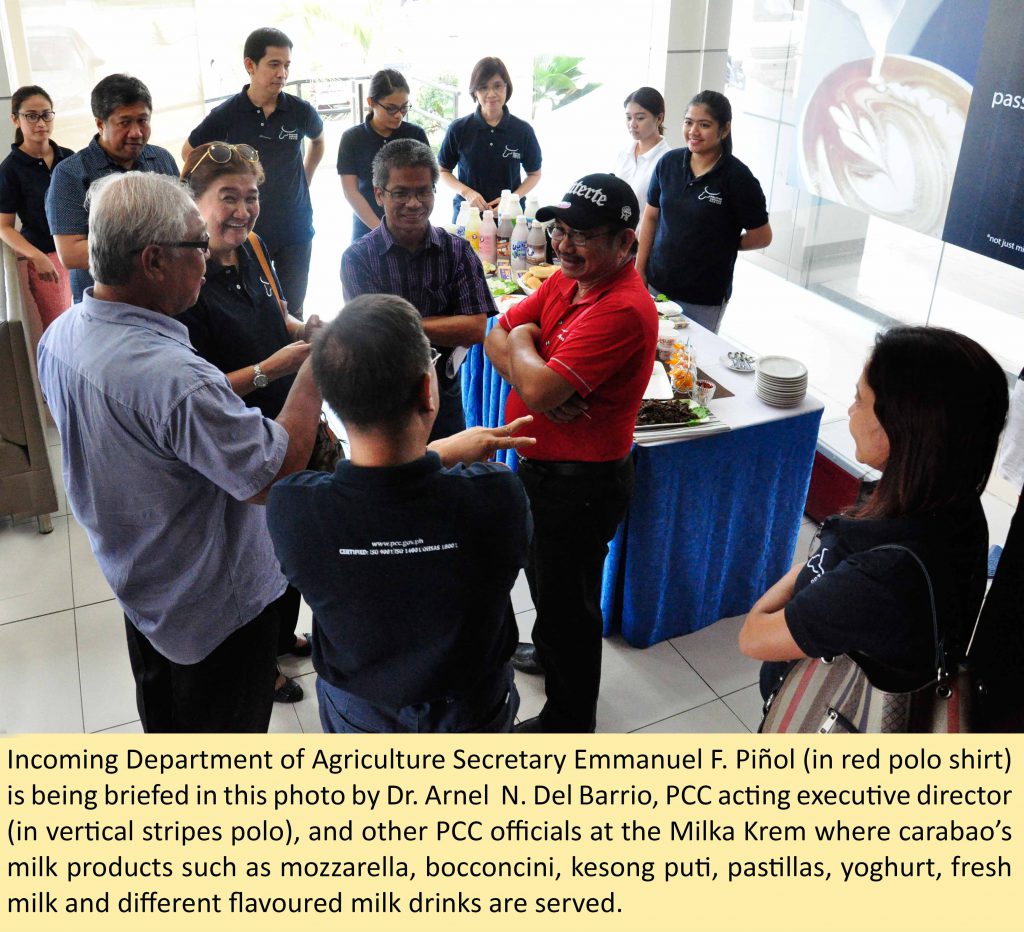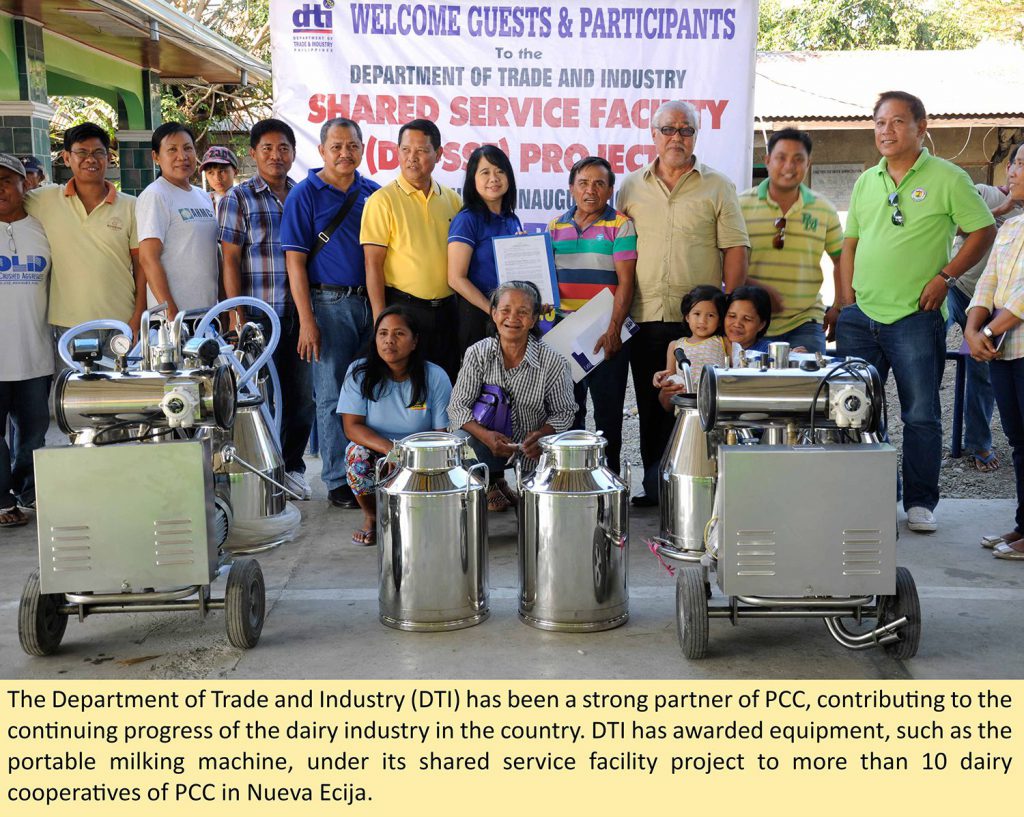A novel study on a gene associated in water buffaloes won this year’s “Best Paper” in the recent R4D In-house Review, June 27-28 at the PCC National Headquarters and Gene Pool.
From seven completed researches evaluated by the board of panelists, the team of Dr. Eufrocina Atabay, Dr. Edwin Atabay, Dr. Claro Mingala, Dr. Emma Venturina, Dr. Rafael Fissore, and Roseline Tadeo who worked on the Molecular Characterization and Comparison of Phospholipase C Zeta (PLCZeta) Between Swamp type (Bubalus carabanensis) and Riverine type (Bubalus bubalis) Buffaloes garnered 91%, making it as “Best Paper”. Tadeo, science research assistant at the Reproduction and Physiology Unit, who served as the presenter, won as the “Best Presenter”.
The evaluators recognized the potential contribution of the study where Phospholipase C Zeta, a novel sperm-specific protein which is widely known to induce oocyte activation following fertilization, was finally characterized this time in water buffaloes.
“The study is a pioneering work and will give new molecular information on water buffalo (swamp and riverine type) of gene associated to fertility identified as PLCZeta, which was previously characterized in various mammalian species but never in water buffaloes. Our study will serve as baseline for a potential molecular genetic marker of bull fertility,” Tadeo said.
This was one of the studies presented in various disciplines in livestock industry research such as biosafety, product development and management, animal genomics, cryopreservation and techniques, socio-economic dimensions of the Carabao Development Program implementation, and five other commissioned researches.
Twenty other research papers in the undergraduate thesis category and commissioned researches were also presented.
The study on “Molecular detection of tetracycline-resistance genes in respiratory bacterial isolates of small and large ruminants” by Allan Jeffrey Francia, Gemerlyn Garcia, Dr. Michelle Balbin, and Dr. Mingala won the “Best Paper” in this category.
Dr. Florencia Charito Sebastian, University of the Philippines-Diliman Extension Program (UPDEPP) in Pampanga director; Prof. Ianne Calica, also from UPDEPP; and Anna Reylene Montes, PCC at UPLB science research specialist moderated the discussions on PCC commissioned researches.
Resource panelists tapped for the two-day in-house review were experienced veterinarian Dr. Jose Arceo Bautista of the Dairy Training Research Institute at the University of the Philippines-Los Baños, College of Veterinary Science and Medicine dean at the Central Luzon State University (CLSU) Dr. Virginia Venturina, and College of Agriculture at CLSU faculty Prof. Zosimo Battad II.
R4D national coordinator Dr. Eric Palacpac said the review has an impact on producing compelling researches for the advancement of the PCC’s mandate and the continuous development of the livestock sector.
Dr. Palacpac also encouraged scientists, researchers from PCC network, as well as student-participants to strive harder to create meaningful and relevant researches. He also enjoined all participants to expand their learning by joining the annual Philippine Society of Animal Science Scientific Seminar and Annual Convention in Manila in July.




